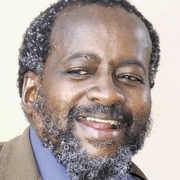
Twenty years ago, we interred the mortal remains of Martin Thembisile Hani, known by his nom de guerre, Chris, after his assassination. Hani was a card-carrying communist all his adult life and actively engaged in its underground from 1962. The programme the South African Communist Party (SACP) adopted that year, South Africa’s Road to Freedom, confirmed the strategic option he had chosen of being an African National Congress (ANC) activist, but also offered a theoretical framework for the work he was engaged in.
After the establishment of Umkhonto we Sizwe (MK) as the nucleus of a liberation army in 1961, Hani was recruited in 1962 and left South Africa to undergo training the following year. By the time of his untimely death, Hani had risen to the rank of chief of staff of MK, having served as national commissar for a number of years after 1983. For a number of objective and subjective reasons, his career path to that rank was not a smooth one.
In July 1963, MK’s high command was surprised at a secret meeting at Rivonia. Its strategy had recapitulated that of the first successful national liberation war — Algeria’s — in Africa. The plan was to infiltrate units trained outside into South Africa, using various means. Underground cells responsible for their security and for servicing them would receive them. Such an embryonic fighting force, it was hoped, would reproduce itself by training others and create a network of combatants with military capacity. The mini-Rivonia trial of 1965 represented the winding up of the underground, which created a bottleneck for the trained combatants completing their training in camps in Africa and military academies in the Soviet Union.
The responsibility for leading the movement was, by default, passed on to those posted outside the country or who had escaped the dragnet of repression after Rivonia. But the external mission was neither designed for, nor did it quickly adapt to, the new situation. The ANC leadership was facing a crisis it had not planned for.
The 1969 Morogoro Consultative Conference was convened to resolve that tension. It restructured the entire ANC and drew members of the ANC’s allies in the Congress Alliance into a single organisation. A revolutionary council, chaired by ANC president Oliver Tambo, was specifically charged with prosecution of the struggle and the reorientation of the entire movement to focus on its internal reconstruction. The decision to open membership to all South African revolutionaries, irrespective of race, proved to be the most contentious.
The ANC emerged from Morogoro with a coherent strategy requiring a de-emphasis of military aspects and greater attention to grassroots matters around which small-scale and ever-widening struggles could be waged. Hani turned his attention to the reconstruction of the movement inside South Africa. In 1973-74 he infiltrated South Africa from Botswana, ultimately relocating to Lesotho, from where he worked with others to rebuild the movement’s structures in the Cape and Free State until 1982.
Hani was prepared to accept that the SACP had not always had an adequate appreciation of the dialectics of race, class and gender and did not contemptuously dismiss the views of nonparty Marxists. Many in the SACP could not understand his longstanding and comradely relationship with the late Livingstone Mqotsi and others.
Within the ANC alliance, Hani refused to be quiet about the abuse of power and incipient corrupt practices. There were occasions when he personally suffered for his courage in speaking up on issues on which others thought it better to remain silent. The emergence (today) of a rapacious, indigenous elite, with their lifestyle of conspicuous consumption, would have earned his round condemnation. An instinctive democrat and committed communist, Hani sought to build the SACP as a powerful and independent voice of the working class within the tripartite alliance after 1990. But he never projected that as the SACP acting and speaking like an antagonist of the ANC. The role he defined for the SACP was that of a concerned ally, pursuing a shared agenda, with each party always conscious of the other’s sovereignty.
The growing perception, true or false, that the ANC is presiding over a regime of galloping corruption would have stirred him to action against the corrupt in our ranks. He would have been among the first calling for clean government and a clean ANC that has a commitment to rooting out corruption.
Fighting for sound policies has never been a task for the faint-hearted. Speaking up against wrongdoing within the ranks sometimes requires more courage than facing the enemy. Hani repeatedly demonstrated the courage to do precisely that when it was necessary.
The day after the death of his old comrade, Karl Marx, Friedrich Engels ended a letter to Adolph Sorge with the words: "The struggle of the proletariat continues. That victory is certain. Well, we must see it through. What else are we here for? And we have not lost courage yet."
Courage was one quality that defined Hani. We honour his memory best by emulating his courage, honesty and integrity.
Written by: Pallo Jordan
Picture credit: Business Day
• Jordan is a former arts and culture minister. This article was published on Business Day.
